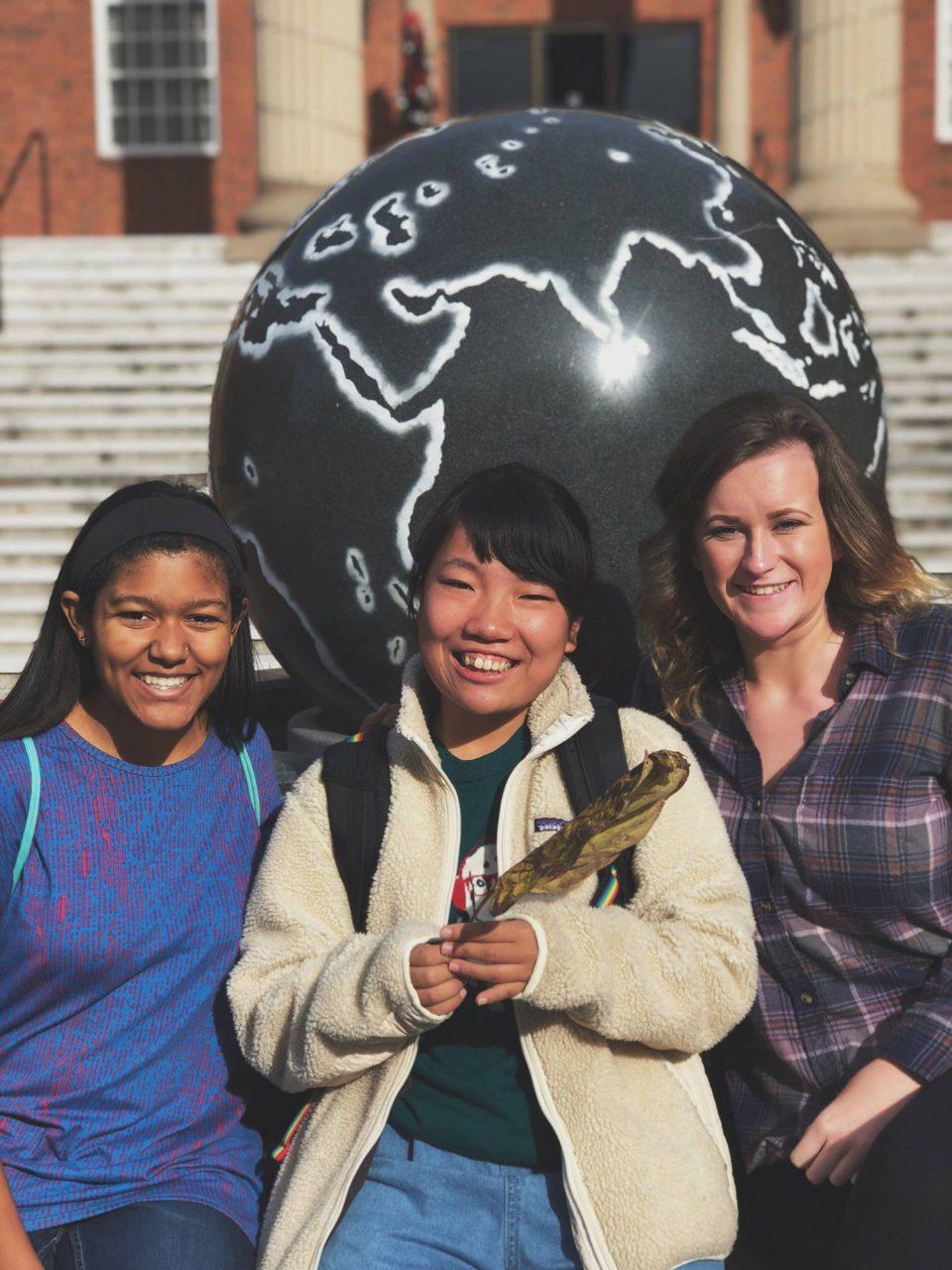For many students, college opens up a world of new possibilities. Students are on their own for the first time, and the opportunities to further their education are beyond anything they’ve known to that point.
Included among these new opportunities is the chance to to leave the country by themselves to travel or study abroad, which can be pretty overwhelming to even the most confident. However, many places have resources that can facilitate the experience for students and for App State, that’s where iPals comes in.
iPals is a student-led organization that matches up new, incoming international students at App with U.S. students that have been on campus for a year or more.
“I like to describe it as pen pals in real life,” iPals president Larissa Jenkins, a senior biology major, said. “We match incoming international students with current domestic students, and then we just try to foster a lot of friendship and understanding of language and culture.”
At the beginning of each semester, iPals are matched at the club’s first meeting after interested students fill out an application on AppSync. Aside from intermittent events, pairs are left to their own devices to explore and learn from each other.
Most of the international students at App come from Japan, iPals vice president and junior psychology major Shannon Bartolac said.
Schooling is different here, so it takes time to adjust. Having buddies to reach out to that will help new international students get used to App State and Watauga helps to alleviate stress and worries.
Another problem that incoming students have to deal with is a different public transportation system.
“A lot of international students, when they first come, are challenged by the limited public transportation that there is here,” iPals adviser Lindsay Pepper said. “Of course, AppalCart goes pretty well around Boone, but in terms of actually seeing other places and getting outside the city limits, that can be more challenging.”
Many students in Boone have cars to get to and from home, which is valuable for international iPals, as getting around Watauga without a car is easier said than done. Having a domestic pal with a car at their disposal can go a long way for international students.
Having a friend on a new campus that already knows their way around can be incredibly helpful for international students who might have questions about campus, Pepper said.
Additionally, iPals can also offer language practice for both U.S. and international students. More than 70 percent of international students at App State come from Asia, but the university also sees students from Europe, South America and Africa, Jenkins said. For students that are taking foreign languages, their iPals can be instrumental in pushing their education forward.
“It kind of forces them to step out of their comfort zone,” Bartolac said. “Everyone here doesn’t speak what they speak, so they’re kind of forced outside of whatever language they take to speak English.”
Alongside language practice, iPals can help each other learn about their respective cultures. Domestic students can help teach their pals about American and Appalachian cultures while they’re here, but their international pals can also teach them about their country’s culture. This is especially helpful if a U.S. student plans to study abroad in that country or travel there outside of school.
The club also pushes students to expand their comfort zone socially, Pepper said.
“It’s really easy for international students to kind of stay in their own bubble or just hang out with other international students,” Pepper said. “So this is a really good way to make sure they’re meeting other Americans or people that have been attending App State for a couple of years.”
iPals also encourages a sharing of cultures in group settings. After the initial iPals pairing event, the organization also holds events scattered throughout the semester.
“They do bigger events like, they’ll go hike Grandfather Mountain, or they’ll go to SCarowinds, and then they’ll also do some smaller events like just having a meal together or a movie night,” Pepper said.
The club also tries to showcase seasonal traditions in the U.S. to international students, like pumpkin carving in October or making valentines in February, Pepper said.
iPals are matched in September, but for those that missed the application deadline or decided to join late, there are always opportunities to get involved.
“For people who want to be in the program or join late or something, you can still go to the events and hang out with international students or other people who are just internationally-minded, even if you don’t pair up with someone individually,” Pepper said. “So there are still ways to kind of be involved and be a part of it.”
Story by Mack Foley
Photos courtesy of Shannon Bartolac
Feature Photo Caption: Members of iPals, Larrisa Jenkins (left), Sayoko Naka (middle), Shannon Bartolac (right).

